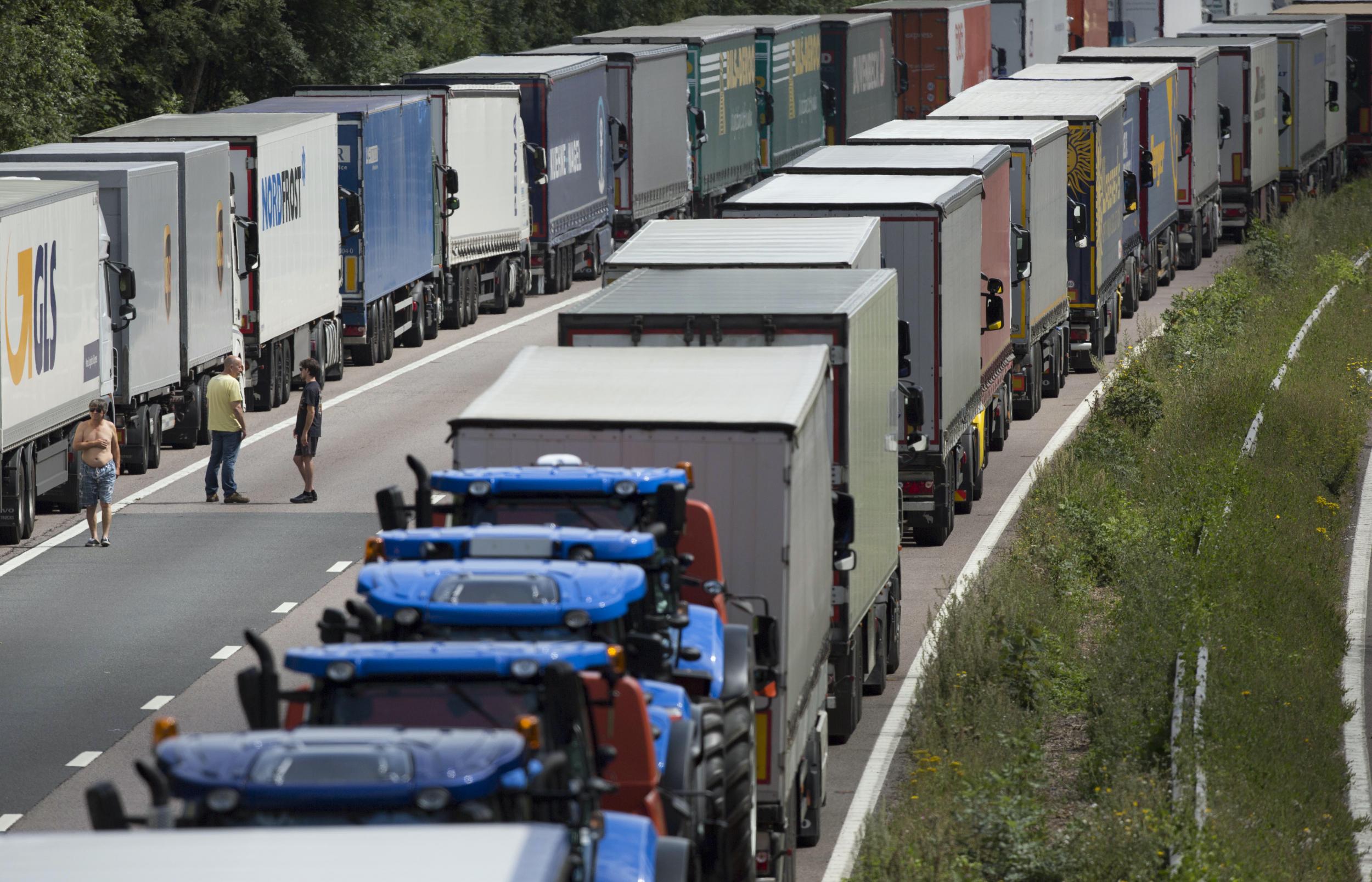Why would a no-deal Brexit be a problem for Britain’s ports?
Analysis: As with all things Brexit, the real row ends up being a political one, explains Lizzy Buchan


Queues of lorries snaking back for miles through Kent. The gridlock causing huge disruption to the surrounding area. Millions of pounds of public money spent on additional ferries to prevent delays getting food and other vital goods into the UK.
These are some of the most extreme visions of a post-Brexit future if Britain leaves the European Union without a deal.
While the reality is more complicated, Dover, in particular, has become a sort of Brexit ground zero, where fears about a disorderly exit from the EU are played out.
Britain’s ports will be affected by whatever deal the government does – or does not – reach after Brexit, as traffic with the EU accounted for 55 per cent of international goods passing through major UK ports in 2017, according to government figures. Around 95 per cent of all imports and exports to the UK are transported by sea.
The matter has reared its head again after it emerged the Department for Transport (DfT) had quietly signed three contracts worth some £107m for additional ferries to ease fears of “severe congestion” in the event of a no-deal Brexit.
The documents set out concerns that increased border checks in UK ports after Brexit could “cause delivery of critical goods to be delayed” in the event of no deal.
Under existing rules, few checks are needed for freight travelling between Britain and mainland Europe. If Theresa May cannot secure a deal with the EU, then customs checks and paperwork will apply to millions of trucks using major ports, potentially creating long delays.
In a sign of how crucial the issue is, the contracts were not even put out to tender, with the DfT saying it was a “situation of extreme urgency” brought about by “unforeseeable events”.
There could be positives too, as these new crossings are expected to bring extra business to ports such as Immingham, in Lincolnshire, Felixstowe in Suffolk and Portsmouth in Hampshire.
Tim Morris, chief executive of the UK Major Ports Group, argued in a recent article in The Spectator that ports invest in local infrastructure, with “each pound spent on a road connecting a port to another area can add more than four pounds of value to the wider local economy”.
The DfT has come under fire in the past for being too secretive over its no-deal preparations, which makes it difficult for businesses to plan. The department argues that it has to protect the commercial interests of the firms involved by keeping elements confidential.
Some details have been made public, such as work to prevent highways chaos in Kent, codenamed Operation Brock. But the Public Accounts Committee warned that there was still a risk of ”major disruption”.
But, as with all things Brexit, the real row ends up being a political one. On paper, these plans could be regarded as sensible preparations by the government, and are likely to be hailed as such by Brexiteers who advocate a no-deal exit.
But critics accused ministers of “recklessly” spending public money on last-minute preparations for a chaotic exit, asking the million-dollar question – whether the government should be stumping up millions of pounds for no-deal planning when so many other areas are in need of public cash.
Got an unanswered question about Brexit? Send it to editor@independent.co.uk and we’ll do our best to supply an answer in our Brexit Explained series
Join our commenting forum
Join thought-provoking conversations, follow other Independent readers and see their replies
Comments
Bookmark popover
Removed from bookmarks